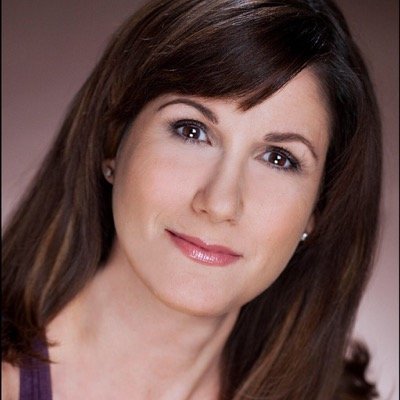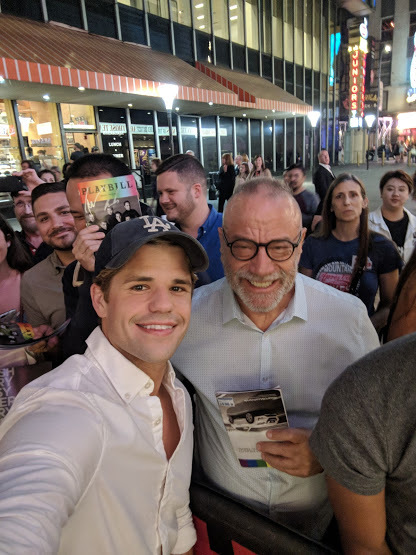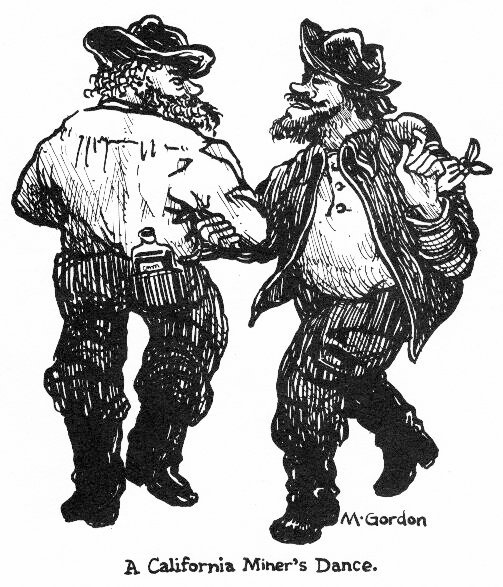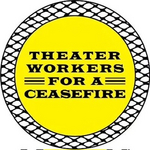FUN HOME
FindingNamo
Broadway Legend Joined: 7/22/03
Jay94
Featured Actor Joined: 4/10/11
#28FUN HOME
Posted: 6/9/15 at 5:44pm
This show doesn't necessarily need huge tourist dollars. Its a smaller theatre and I believe there are enough sophisticated travelers who are theatre lovers, as well as people in the area who are flocking to the show.
Also, I think they are tapping into the LGBT community who may not regularly attend theatre. I know many people who are not theatre fans who are fans of Bechdel who are making this show their destination.
I sat in the 200s and felt that was the best seats. I felt like everyone was facing me most of the time, but maybe people in the 100s felt the same way.
FindingNamo
Broadway Legend Joined: 7/22/03
#31FUN HOME
Posted: 6/9/15 at 6:43pm
She's been so forthcoming with here thoughts about the entire broadway process, I hope she is interviewed soon.
#34FUN HOME
Posted: 6/9/15 at 9:18pm
Saw the show tonight. Started a half hour late because of technical issues with the trap doors. The one used during telephone wire wasn't working.
Producers came out out to talk about the show at the beginning and Jeannine came out at end. What a great show! Loved the energy from Sunday night's win.
Gabby came out with Jeannine at the end. Would like to see her as small Allison one day!
FindingNamo
Broadway Legend Joined: 7/22/03
#36FUN HOME
Posted: 6/9/15 at 9:37pm
"ok please understand I have not seen this show, but only clips from the TONY'S and youtube...but does anyone else hear a musical resemblance to William Finn's FALSETTOS?...just curious...thanks!"
Yes, I noticed it when I played the score last night. But I'd call it an "influence" not a "borrowing". (Though if you told me "Welcome to Our House on Maple Avenue" had been written by Finn and interpolated into the score, I'd probably believe you.)
No different from the countless scores "influenced" by Sondheim or Rodgers.
The similarity in size and subject matter, however, makes the influence more noticeable.
This is in no way a knock on the FUN HOME score, which I appreciate more each time I hear it. Unlike Namo, I LOVE the three FALSETTO musicals.
(Disclaimer: I am not a trained musician.)
Updated On: 6/9/15 at 09:37 PM
FindingNamo
Broadway Legend Joined: 7/22/03
#39FUN HOME
Posted: 6/10/15 at 8:53pm
I don't hear FALSETTOS at all. Yet at odd moments a whiff -- only a small one -- of NEXT TO NORMAL. (Even the end of "Ring of Keys" echoes "I'm Alive" -- don't scream everyone, just a tad; listen.) But in tone, storytelling and character, it's like nothing that has come before. And the show's steadfast refusal to neither demonize nor romanticize Bruce's plight* is everything that FALSETTOS, frankly is not. Sentimentality never clouds Allison's journey, though it is deeply emotional every treacherous step of the way.
*(SPOILER ALERT: Listen to the scene around "Telephone Wire." Stunning, his inarticulate and shut-down responses to his daughter when he tries to broach the possibility of the two of them walking into a gay bar together. The moment is breathtaking for what's explored entirely between the lines. And heartbreaking, the present day Allison's wish to fix a lost experience that can't be righted after the fact.)
#40FUN HOME
Posted: 6/11/15 at 12:12pm
This seems as good a place as any to ask this question:
Has any Best Musical Tony winner ever played in as small a theater as Fun Home? I thought Avenue Q might have had it beat, but a look at the grosses suggests that the Circle in the Square (at least as currently configured) has fewer seats than the John Golden. I'm hoping one of the distinguished theater historians on this site might be able to answer this question one way or the other!
#41FUN HOME
Posted: 6/11/15 at 12:50pm
"This seems as good a place as any to ask this question:
Has any Best Musical Tony winner ever played in as small a theater as Fun Home? I thought Avenue Q might have had it beat, but a look at the grosses suggests that the Circle in the Square (at least as currently configured) has fewer seats than the John Golden. I'm hoping one of the distinguished theater historians on this site might be able to answer this question one way or the other!"
According to the Broadway League's website, the only theaters with less seats than Circle in the Square are the American Airlines, Booth, Samuel J. Friedman, Golden, and Helen Hayes. If we don't count the Golden (since the Fun Home configuration, as you mentioned, must have reduced the seating capacity to below that of the Golden), I can't think off the top of my head of any Best Musical winners that premiered at those theaters.
#42FUN HOME
Posted: 6/11/15 at 12:50pm
""but does anyone else hear a musical resemblance to William Finn's FALSETTOS?"
I hated "Falsettos" so… much, it, it… the feel, it … flames, flames -- FLAMES -- on the side of my face… breathing, breathle.. heaving breath."
Thank you for giving me my biggest laugh of the day!
#43FUN HOME
Posted: 6/11/15 at 7:03pm
Augie, compare "Welcome to Our House on Maple Avenue" to "Making a Home" from MARCH OF THE FALSETTOS. As I said above, it's just an influence, not a rip-off; but the similarities are there.
To repeat, this in no way detracts from the achievement of FUN HOME. Richard Rodgers admitted he would often imagine what Jerome Kern would do; to my knowledge, nobody ever accused Rodgers of merely imitating Kern.
Why the hatred for the FALSETTO plays? (I prefer them individually rather than as a set in FALSETTOS.)
What's wrong with a little honest sentiment?
#44FUN HOME
Posted: 6/11/15 at 7:21pm
I'm SO happy for this musical. I cried like a baby listening to the cast recording for the first time and am happily shelling out money to FINALLY see it next month. I just love the support it's getting from everyone. Even the groups I follow on Facebook (more feminist ones than anything) posted something about it when I have never seen them post a thing about theatre in general.
Auggie: I actually see where you're going with the N2N bit.
#45FUN HOME
Posted: 6/11/15 at 7:55pm
I think one of the work's very few shortcomings is that Brucs, while not romanticized, is a more sympathetic and less threatening character than in the novel. His liking younger men is treated as only slightly remarkable and dramatized with what appears to be a graduated student, while the novel makes it clear that he tends to go for teenagers.
The narrative brilliance was that he never became a sex criminal stereotype- he was a tragic character but a dangerous, sinister one. Little of Bruce's threat seeps through to the musical.
#45FUN HOME
Posted: 6/11/15 at 7:55pm
I think one of the work's very few shortcomings is that Brucs, while not romanticized, is a more sympathetic and less threatening character than in the novel. His liking younger men is treated as only slightly remarkable and dramatized with what appears to be a graduated student, while the novel makes it clear that he tends to go for teenagers.
The narrative brilliance was that he never became a sex criminal stereotype- he was a tragic character but a dangerous, sinister one. Little of Bruce's threat seeps through to the musical.
#47FUN HOME
Posted: 6/11/15 at 11:16pm
There's a wonderful 20 minute piece of video, which I must dig up, when Tesori and Kron discuss how long it took them to find a way into Bruce that didn't present him as detestable and inaccessible. Knowing the show would be unwatchable if it eschewed a basic level of understanding. They knew this was a story about Alison making peace with many oppositional aspects of her conflicted father, and had to create a man that could sing in a piece of musical theater that was neither a winning hero nor the traditional villain. He did inspire his daughter, if obliquely, and help her nurture her talent. So they landed on a shorthand, to show him wrestling with his rigid, aesthetic-centric (and narcissistic) demands on the home while sneaking men in (and his wife, late in the show, sings truthfully that they were often boys; no one sidesteps that). I don't think the show in any way whitewashes Bruce.
But who would want it to be a moralizing hatched job? Art (the best sort) illuminates motive and behavior beyond judgement. Kron's adaptation is also filled with compassion, even as it shows the negative impact his deceptive (and boundary ignoring) behavior had on everyone. Do remember: Alison's mother is buried next to her husband. She chose that. This is a story filled with a pragmatic dry-eyed sense of redemption. Alison examines her father, and then releases him, damaged as he was, in the play's final moments. So she can move on. In interviews, Alison talks about unexpected "grace" coming from the musical's trajectory. She approves of how the story resolves. The authors did an extraordinary job in maintaining the overall truth but finding access to a tortured man's crises without demonizing him.
#49FUN HOME
Posted: 6/12/15 at 8:56am
""but does anyone else hear a musical resemblance to William Finn's FALSETTOS?"
I hated "Falsettos" so… much, it, it… the feel, it … flames, flames -- FLAMES -- on the side of my face… breathing, breathle.. heaving breath."
NAMO I love clue! I hope that they make a musical of it! It would be incredible.
Videos
















